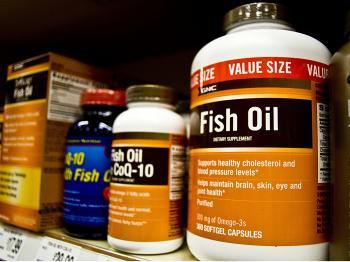One of the most frequently asked questions by athletes and fitness enthusiasts is: What is the best protein supplement to take for building muscle and melting fat? A more important question to consider first is whether these protein supplements actually provide the extra edge they promise to deliver.
The multibillion-dollar industry of protein supplements has boomed over the past several years as protein gets marketed as the essential nutrient for weight loss, muscle development, and plateau breakthroughs. Unfortunately, the benefits of these supplements are overstated and the potential harm is underestimated.
While protein may not be the key to enhancing your workouts, it is an essential nutrient needed by our bodies to form and maintain various bodily tissues—from muscles, to organs, to nails. Proteins, offering four calories per gram, are composed from different amino acids. Out of the 20 plus existing amino acids, it is generally accepted by scientists that there are 9 that our bodies can’t produce by themselves. These nine are called essential amino acids. We must obtain them from food sources, otherwise our bodies would be unable to build and preserve our muscles.
Commercial protein supplements are made in laboratories and usually based in egg, soy, whey, or casein (whey and casein are proteins found in milk). These supplements come as shakes, powders, or bars, and were first popularized by bodybuilders and strength athletes.
Proponents of the supplements say that these products are made from high quality amino acids that can make up for any protein deficiencies caused by demanding workout routines. While protein deficiency does hinder effective muscle repair and building, protein deficiency is rarely an issue for Americans (with the exception of vegans who have to be careful about including complete protein sources in their diets). Even though strength athletes and those on vigorous exercise regimens have increased protein needs, their diets already likely contain much more protein than needed for muscle synthesis.
Current research shows that athletes seeking to increase muscle mass need about 1.4 to 1.8 grams of protein per kilogram (2.2 pounds) of their body weight each day. But, this turns out to be not that much protein. For a 200-pound athlete, he would need about 126 to 162 grams of protein a day. This requirement could be easily satisfied by three modest portions of chicken breasts or a generally well-balanced diet.
Supplement advocates claim that protein supplements can provide that extra boost needed for faster improvement. The concept that eating more protein than required by the body may have additional benefits results from not understanding how our bodies work. While a little extra protein is not detrimental to most people, the supranutritional doses recommended by supplement manufacturers may put some people at risk of various health issues.
When the body is flooded with extra protein, it has no mechanism to store the excess. Instead, the protein is broken down into its amino acid building blocks, which are then further deconstructed into various byproducts. These byproducts, including urea, are processed by the liver before they are excreted in the urine. The process of filtering out loads of urea places a large burden on the kidneys. This can also lead to increased calcium excretion in the urine, which increases the risk of osteoporosis. Some researchers believe that excessive protein intake can even initiate kidney disease and increase cancer risk.
Some manufacturers like to highlight that these supplements are composed from individual amino acids, which can repair stressed muscles more quickly than proteins extracted from whole foods. When we ingest whole proteins from food, our gastrointestinal system secretes enzymes to break the protein down into amino acids. Once the body absorbs the amino acids, it incorporates them into various tissues. Since our bodies are very efficient at breaking down and absorbing protein, there is no advantage in consuming amino acids directly.
Another popular claim made by the industry is that supplements containing high levels of certain amino acids can speed up weight loss and muscle gain. In actuality, the so-called optimized levels of select amino acids advertised by various supplements may provide no benefit, and even add potential harm.
The amino acids present in some supplements are nonessential amino acids that our bodies already make, and our bodies end up working hard just to expel the excess. In addition, too much of a single amino acid may overwhelm our body’s natural balance and lead to muscle wasting—the opposite of what these products promise. The industry sometimes added amino acids such as arginine and lysine in copious amounts and claim that they trigger the release of growth hormones, stimulating muscle growth and fat breakdown. These amino acids can increase levels of growth hormone when high doses are injected into the bloodstream, but it is not proven whether the same effect occurs when they are orally consumed.
The quality and safety of these supplements are another source of controversy, according to nutrition and medical experts. Protein quality is often measured by biological value, or how well a protein is absorbed and incorporated into the body. Some of the supplements based in soy or casein have lower biological values (whey and egg are quite a bit higher in biological value). This means that even though you eat a lot of those proteins, they may not be available for the body to use in biological processes.
Since there is very little regulation in the supplement industry and many products go untested by the U.S. Food and Drug Administration (FDA), there could be a high variation between products or even between bottles of one product.
While it’s probably unnecessary to binge on protein supplements after your workout, good nutrition and protein intake is still extremely important for optimizing your performance and results. The best way to refuel your body is to rehydrate and eat a four to one ratio of carbohydrate to protein combination within two hours after your strenuous workout. Whole foods give the advantage of providing your body phytochemicals that may boost the immune system and provide anti-oxidization properties. However, sometimes it may be easier to just drink a shake. You can make your own protein shake by combining two parts milk, one part yogurt, a banana, two tablespoons of peanut butter and adding sugar to taste.
The multibillion-dollar industry of protein supplements has boomed over the past several years as protein gets marketed as the essential nutrient for weight loss, muscle development, and plateau breakthroughs. Unfortunately, the benefits of these supplements are overstated and the potential harm is underestimated.
While protein may not be the key to enhancing your workouts, it is an essential nutrient needed by our bodies to form and maintain various bodily tissues—from muscles, to organs, to nails. Proteins, offering four calories per gram, are composed from different amino acids. Out of the 20 plus existing amino acids, it is generally accepted by scientists that there are 9 that our bodies can’t produce by themselves. These nine are called essential amino acids. We must obtain them from food sources, otherwise our bodies would be unable to build and preserve our muscles.
Commercial protein supplements are made in laboratories and usually based in egg, soy, whey, or casein (whey and casein are proteins found in milk). These supplements come as shakes, powders, or bars, and were first popularized by bodybuilders and strength athletes.
Proponents of the supplements say that these products are made from high quality amino acids that can make up for any protein deficiencies caused by demanding workout routines. While protein deficiency does hinder effective muscle repair and building, protein deficiency is rarely an issue for Americans (with the exception of vegans who have to be careful about including complete protein sources in their diets). Even though strength athletes and those on vigorous exercise regimens have increased protein needs, their diets already likely contain much more protein than needed for muscle synthesis.
Current research shows that athletes seeking to increase muscle mass need about 1.4 to 1.8 grams of protein per kilogram (2.2 pounds) of their body weight each day. But, this turns out to be not that much protein. For a 200-pound athlete, he would need about 126 to 162 grams of protein a day. This requirement could be easily satisfied by three modest portions of chicken breasts or a generally well-balanced diet.
Supplement advocates claim that protein supplements can provide that extra boost needed for faster improvement. The concept that eating more protein than required by the body may have additional benefits results from not understanding how our bodies work. While a little extra protein is not detrimental to most people, the supranutritional doses recommended by supplement manufacturers may put some people at risk of various health issues.
When the body is flooded with extra protein, it has no mechanism to store the excess. Instead, the protein is broken down into its amino acid building blocks, which are then further deconstructed into various byproducts. These byproducts, including urea, are processed by the liver before they are excreted in the urine. The process of filtering out loads of urea places a large burden on the kidneys. This can also lead to increased calcium excretion in the urine, which increases the risk of osteoporosis. Some researchers believe that excessive protein intake can even initiate kidney disease and increase cancer risk.
Some manufacturers like to highlight that these supplements are composed from individual amino acids, which can repair stressed muscles more quickly than proteins extracted from whole foods. When we ingest whole proteins from food, our gastrointestinal system secretes enzymes to break the protein down into amino acids. Once the body absorbs the amino acids, it incorporates them into various tissues. Since our bodies are very efficient at breaking down and absorbing protein, there is no advantage in consuming amino acids directly.
Another popular claim made by the industry is that supplements containing high levels of certain amino acids can speed up weight loss and muscle gain. In actuality, the so-called optimized levels of select amino acids advertised by various supplements may provide no benefit, and even add potential harm.
The amino acids present in some supplements are nonessential amino acids that our bodies already make, and our bodies end up working hard just to expel the excess. In addition, too much of a single amino acid may overwhelm our body’s natural balance and lead to muscle wasting—the opposite of what these products promise. The industry sometimes added amino acids such as arginine and lysine in copious amounts and claim that they trigger the release of growth hormones, stimulating muscle growth and fat breakdown. These amino acids can increase levels of growth hormone when high doses are injected into the bloodstream, but it is not proven whether the same effect occurs when they are orally consumed.
The quality and safety of these supplements are another source of controversy, according to nutrition and medical experts. Protein quality is often measured by biological value, or how well a protein is absorbed and incorporated into the body. Some of the supplements based in soy or casein have lower biological values (whey and egg are quite a bit higher in biological value). This means that even though you eat a lot of those proteins, they may not be available for the body to use in biological processes.
Since there is very little regulation in the supplement industry and many products go untested by the U.S. Food and Drug Administration (FDA), there could be a high variation between products or even between bottles of one product.
While it’s probably unnecessary to binge on protein supplements after your workout, good nutrition and protein intake is still extremely important for optimizing your performance and results. The best way to refuel your body is to rehydrate and eat a four to one ratio of carbohydrate to protein combination within two hours after your strenuous workout. Whole foods give the advantage of providing your body phytochemicals that may boost the immune system and provide anti-oxidization properties. However, sometimes it may be easier to just drink a shake. You can make your own protein shake by combining two parts milk, one part yogurt, a banana, two tablespoons of peanut butter and adding sugar to taste.







